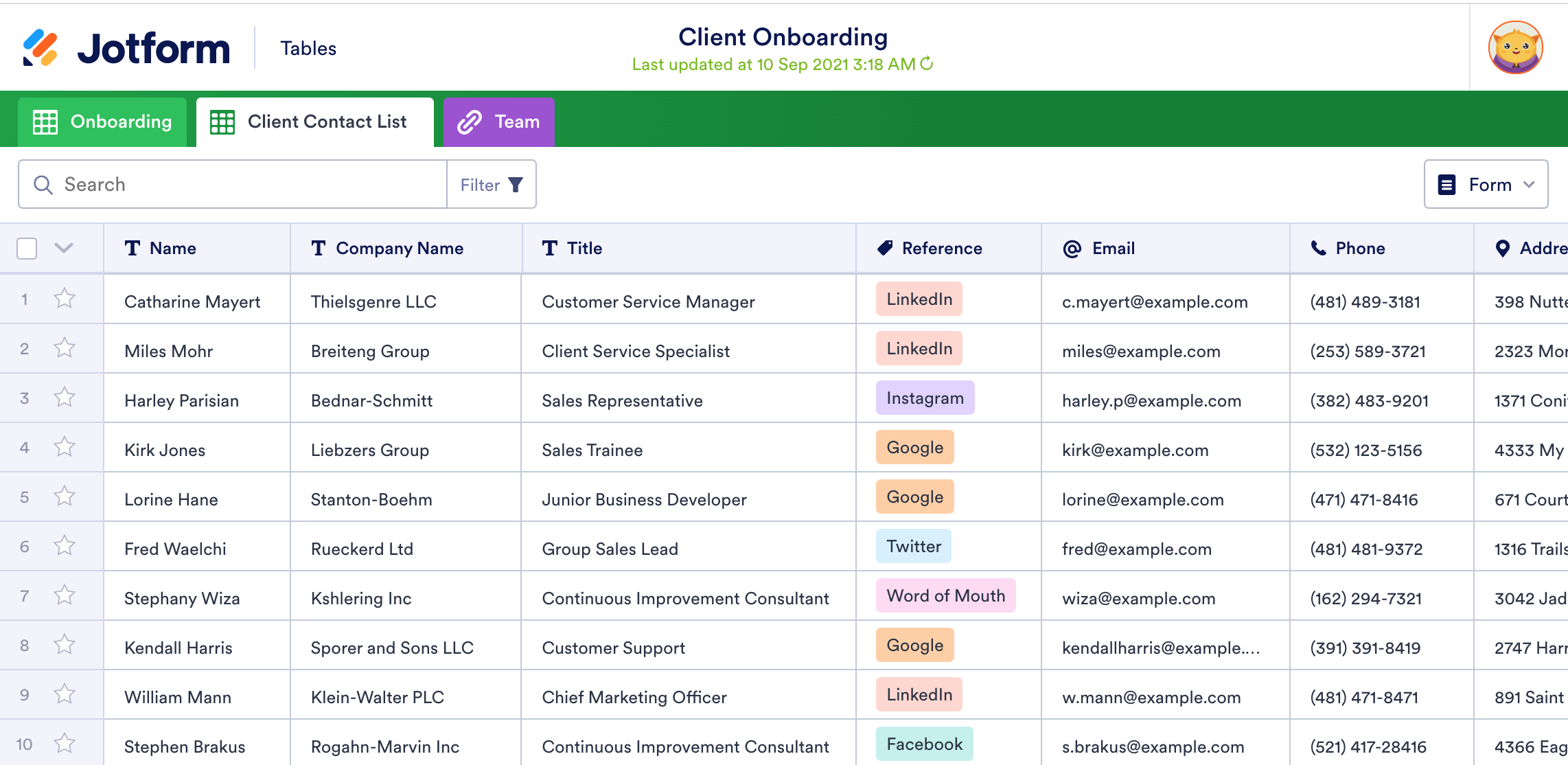Chances are you’ve seen or heard the phrase “the future of work.”
While the phrase gained popularity in the mid-2010s, the idea has been around for centuries. According to Gartner, the future of work is defined as “changes in how work will get done over the next decade, influenced by technological, generational and social shifts.”
Anytime there are major shifts in our world (be they technological, societal, or cultural), there’s a tendency for thought leaders to reexamine how those trends will shape the work we do and the processes we use to do it.
For example, when Ford invented the assembly line, it not only changed how manufacturing work was done, but it had ripple effects across areas like business operations, supply chain management, human resources — and later automation — just to name a few.
In response to innovations like this, whole industries — especially consultancies — were born and converged around this idea of what will come next for work in the future.
Which got us thinking…data collection impacts so many workforce areas, it’s worth a look into how it too is enabling the future of work.
There’s no denying that the onset of COVID-19 hit the trifecta, causing a technological, generational, and social shift all at once. The pandemic created an immediate need for all of us to figure out how work could, and should, be done to be most productive, and in some cases, for business survival. This change forced everyone, across all industries, to reassess their processes from A to Z.
Data collection’s role in the future of work
Nearly all of the factors that will shape the post-COVID future of work have a relationship with data collection.
Among the handful where data collection plays an intrinsic role are
- Artificial intelligence (AI) to modernize your business automation, processes, and decision-making
- Agile cloud-based tech that works seamlessly regardless of system, whether in person or remote
- Adaptive skill sets for employees
- Support for your team’s diversity, inclusivity, and well-being
Now that we’ve identified some of the factors involved, let’s take a closer look at how data collection applies to each. We’ll also explore how your business can leverage your own data collection to be better positioned for the future of work.
AI for business automation
The most important thing about integrating artificial intelligence into your work processes isn’t the program you use or the types of AI that you work with (though these decisions are important).
The most important thing is the data upon which the AI is learning. If you’re planning to automate business decisions with a learning computer, the base level data you feed into that computer should be diverse, comprehensive, accurate, secure, and easily transmitted.
How do you ensure the AI your business is running (or plans to run) uses reliable data? You can take measures within Jotform to maximize your data collection.
For instance, make critical fields required in your forms or surveys. Also, depending on your needs, you can use conditional logic to show specific fields based on the answers to certain questions; this has the effect of yielding even more data than originally planned.
To improve your data security and accuracy, consider employing password protection and data encryption to limit access and store your data securely. Jotform Enterprise customers can also use single sign on (SSO) to boost security, authenticate users, protect internal forms, and improve accuracy.
And speaking of accuracy, prefilled forms can go a long way toward improving data hygiene so your AI gets better and better. Simply use Jotform Prefill to pre-populate your forms with data that’s already stored in various databases (i.e., CRMs, internal management databases, Jotform Tables).
Using these approaches will ensure your organization’s data is more comprehensive, accurate, and clean, turning the data you collect through Jotform into the source that fuels your AI decisioning.
Cloud-based tech that integrates seamlessly
The pandemic forced many of us to work remotely. But we still needed to access the company intranets, internal systems, apps, and third-party software programs today’s work depends on. That’s why your data-collection software should be flexible enough to connect to your company’s networks via APIs that allow for customization.
With a broad range of integrations, you don’t have to worry about breakdowns in your workflow. It’s pretty much table stakes for most data-collection software companies to have API connectivity and integrations with the most in-demand third-party programs.
However, teams that integrate Jotform with other systems set themselves up for success in additional ways.
As one example, Jotform Tables can function as a one-click workspace. Users can import CSV or Excel files to their table and download their table as either an Excel file or a PDF.
On a related note, you can use Jotform to convert your hard copy PDF into a Smart PDF form, making it instantly interactive, decreasing receipt time, and allowing you to send the completed digital PDF instantly to your cloud storage systems.
The future of work will require us to get work done from anywhere, on multiple devices that function just as well regardless of location, device, or operating system. Jotform users in industries spanning construction, utilities, nonprofit, beauty, retail, and more have been active on our mobile app (with a dedicated health app for healthcare professionals). This makes data collection and system integration just as easy from their smartphones as it is on their computers.
Nurturing employees through skill set growth
Whether you’re a small business or a large healthcare company, organizations today face new challenges, unique problems, and increased competition. As a result, they need qualified leaders and creative problem solvers with new ways of thinking.
At the same time, employees are looking for the chance to develop new skills and achieve professional growth. This creates a win-win opportunity for all involved.
Post-pandemic, businesses need to invest in their existing workforce to address these skill gaps and train today’s workers. On the front end, directors and HR teams are surveying employees to better understand what they need to be the best they can be. On the back end, that data is funneled into reports that guide everything from training to professional development.
One way you can prepare your team to nurture employees for the future is by using Jotform’s Report Builder. A report view of your employee surveys will not only give you a visual feel for employee sentiment, but it’s automatically delivered in a professional report that’s suitable for presentation.
Data collection also plays a more basic role in skill set development by serving as the method for signing up employees for training sessions, conferences, professional development, and more.
Automated approval mechanisms within the platform make it easy for managers to process requests, and the more efficiently the skill development process happens, the sooner the fruits of that development impact your business.
Enabling diversity, inclusion, and wellness
Similar to seeking employee feedback on skill development, organizations are proactively surveying their employees on issues like diversity, workplace improvements, and wellness in this new era of work.
Employees have an active voice in determining their work environment. Consequently, employers and human resource teams can use the data from these surveys to develop meaningful ways to support their employees.
Companies currently use surveys like these to plan new programs, identify group ambassadors, administer new work benefits, and schedule regular check-ins with their workforce.
Diversity also applies to the kinds of workers organizations are using today. Many small businesses, entrepreneurs, and tech companies need to facilitate work with agencies and freelance talent to scale up their businesses.
The good news is that managing those relationships becomes easier with forms for sourcing, onboarding, and overseeing your freelance talent. Once data starts flowing in, organizations have found it simple to keep track of everything from project deliverables to team collaboration to payroll in Jotform Tables.
The future of work is now, with solutions that support your needs
It’s clear that data collection plays a key role in the future of work. By employing certain techniques — whether surveying your workforce to improve working conditions and engagement, or using prefilled forms for better data accuracy — you can be prepared to help your company navigate the post COVID-19 workforce landscape.
The scope of data-collection software is expanding into full workspaces, enabling teams to easily collaborate, manage data and projects, complete their workflows, and do it all securely. Plus, timely enhancements featuring best-in-class mobility and third-party software connectivity are empowering users of all types to do their best work in the way they feel most comfortable.
The Greek philosopher Heraclitus once said, “The only constant is change.” This echoes in how the way we work today is a reflection of yesteryear’s innovations and how the future of work will be influenced by today’s changes. Data collection is in the middle of it, with the tools to set up today’s workforce for success.

































































Send Comment: